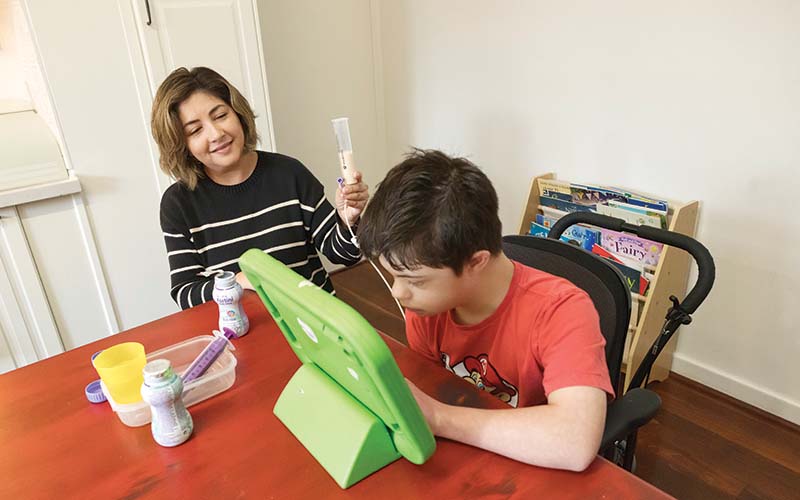Search
Showing results for "Au"
Research
Rheumatic heart disease in Timor-Leste school students: an echocardiography-based prevalence studyThe rates of RHD in Timor-Leste are among the highest in the world, and prevalence is higher among girls than boys. Community engagement is essential for ensuring follow-up and the effective delivery of secondary prophylaxis.
Research
Plasmacytoid dendritic cells protect from viral bronchiolitis and asthma through semaphorin 4a-mediated T reg expansionWe found transient pDC depletion during Pneumovirus infection alone predisposed to severe bronchiolitis in early life and subsequent asthma after reinfection.
Research
Larger Than Life: Injecting Hope into the Planetary Health ParadigmWe argue that the success of planetary health solutions is predicated on a more sophisticated understanding of the psychology of prevention and intervention at all scales

For thousands of children around Australia with intellectual and other disabilities, the process of eating can be traumatic, posing challenges that veer from uncomfortable to life threatening.

Our research focuses on what are the best ways for patients with type 1 diabetes to exercise safely.

News & Events
Launching T1D Sports Resources (take PART)First-of-its-kind T1D sports resources have been designed to help coaches better understand the chronic condition and to encourage youth living with T1D to stay physically active.

News & Events
New research on youth-onset type 2 diabetes in northern AustraliaExplore new research on youth-onset diabetes at The Kids' Institute, uncovering insights to improve health outcomes for young patients in Northern Australia.
Research
Influence of maternal and infant technology use and other family factors on infant developmentSteve Desiree Zubrick Silva FASSA, FAAMHS, MSc AM PhD MBBS, FRACP, MPH, PhD Honorary Emeritus Research Fellow Co-Head, ORIGINS 08 6319 1409
Research
A systematic review of the thoughts and feelings that are associated with suicidal behaviours in Aboriginal and Torres Strait Islander young peoplesAboriginal and Torres Strait Islander Peoples are custodians of one of the oldest living societies; however, the continued impact of colonisation has led to profound trauma and loss which has spanned generations.
Research
Costs of primary healthcare presentations and hospital admissions for scabies and related skin infections in Fiji, 2018–2019Scabies and related bacterial skin and soft tissue infections are highly prevalent in many tropical, low- and middle-income settings. These skin conditions contribute to higher healthcare costs and burdens on healthcare systems.
